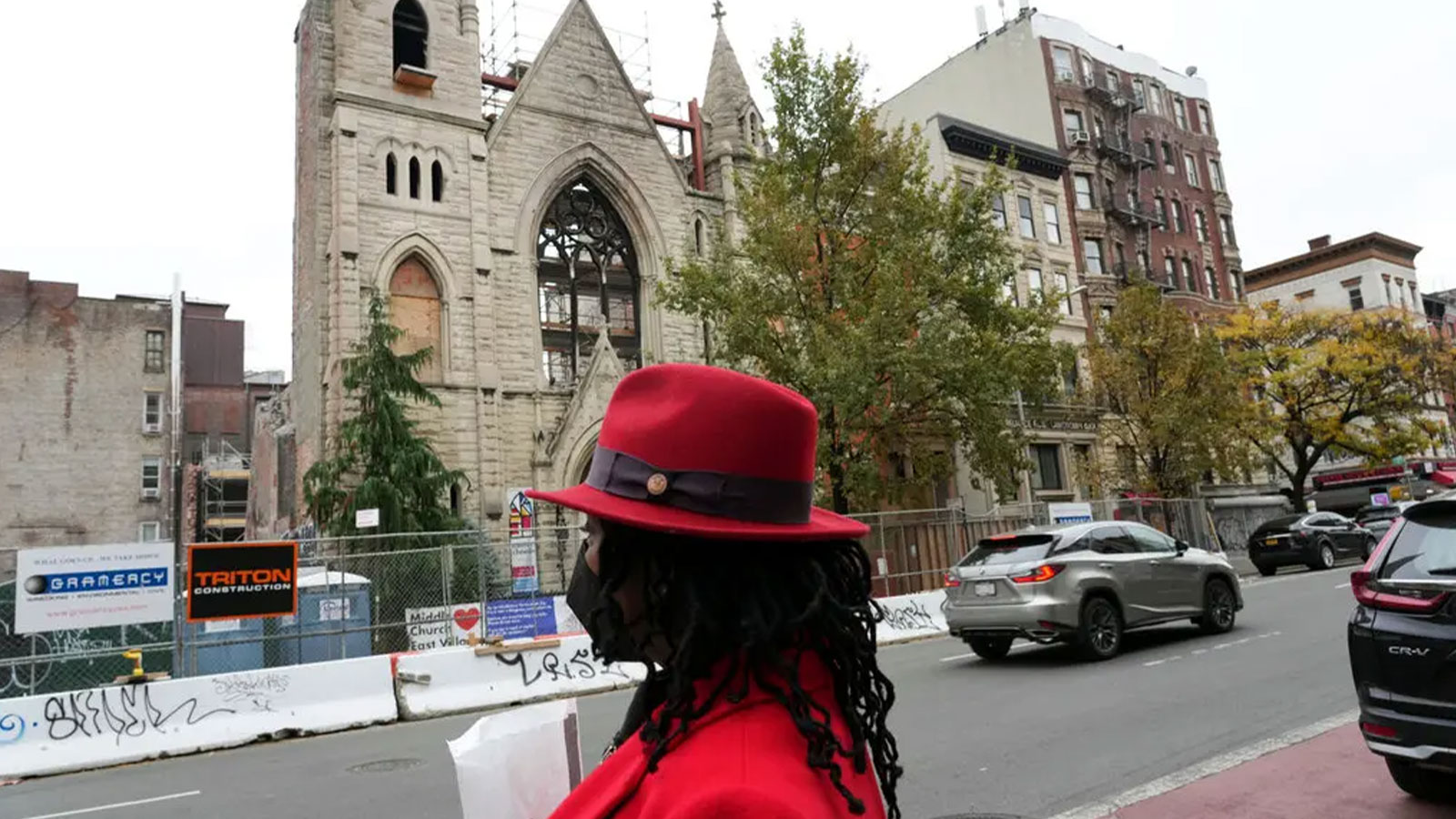“One of the gravest obstacles to the achievement of liberation is that oppressive reality absorbs those within it and thereby acts to submerge human beings consciousness.”
Growing up, you could safely bet that you would find my family in church on Sunday mornings. It is a ritual that, much to my mother’s chagrin, has not carried over into my adulthood. Since my early teenage years, I’ve harbored deep ideological questions regarding the contradictions I believe exist within Christianity and the people who claim to practice it.
Though when I moved back to New York in 2018, I stumbled into an unassuming church situated on second avenue on the corner of east 7th street called Middle Collegiate Church and was immediately struck by the type of rhetoric that echoed within its halls — the conversations I had always yearned for in church.
Led by Reverend Jacqui Lewis, Middle Church is unapologetically bold in its stances on racial, gender, and social justice. By my second service, Rev. Lewis had touched on trans issues, reparations, and Indigenous land theft.
Middle Church, a self-described “multi-cultural, multi-ethnic, intergenerational movement,” doesn’t stand where it once stood for over 128 years. In 2020, the church was destroyed in a six-alarm fire that gutted the entire building.
The fire hasn’t stopped Middle Church from tackling serious and intricate social issues. Yesterday, Rev. Lewis delivered a sermon titled “Living as Reparations People,” in which she advised each of us to repair what is broken inside ourselves and between each other in order to create the public will necessary for complete transformation.
This notion of “reparations people,” which Rev. Lewis introduced in her sermon yesterday, speaks to a common theme I’ve noticed in my conversations about reparations — the urge to apply the principles of reparation to the individual.
In Paulo Freire’s Pedagogy of the Oppressed, he argues that “one of the gravest obstacles to the achievement of liberation is that the oppressive reality absorbs those within it and thereby acts to submerge human beings’ consciousness.”
Those of us concerned with the advancement of liberation understand that societal transformation must coincide with individual transformation. At the interpersonal level, our relationships have obvious fractures, particularly across racial groups.
Rev. Lewis likens these fractures to a broken heart — the organ we’ve constructed to sit at the center of our emotions. Black people, on this land and across the globe, suffer from broken hearts — the result of centuries worth of violence and discrimination based on the color of our skin.
Though we may not inherently recognize it, every time we engage with someone of another race, we experience a range of emotions — what sociologist Tristan Green has called “racial emotions.” Though, as sociologist Eduardo Bonilla-Silva points out, this definition does not capture the fact that racial emotions can also be experienced when “looking at a picture, reading a newspaper, watching a movie, or walking into — or even thinking about a location.” Whiteness does not operate in isolation, according to Bonilla-Silva. In fact, it is predicated on othering, as it requires a binary racial construction where the “other is viewed as the opposite” These racialized thoughts and feelings produce antiblackness—a shared social emotion that binds our culture together.
How can we cultivate a generation of people who are not only concerned with repairing racial fractures at the individual level but are committed to rooting out anti-Blackness at the societal level?
Becoming reparations people, or as we say at Liberation Ventures, “building a culture of repair,” must be understood as a multigenerational challenge. Reparations, therefore, can not be understood as a period but as a comma. Meaning that the project of reparations should not be considered finished until the current values that undergird our worldviews are completely transformed.
Only when we’ve let go of individualism, greed, and competition as societal values and embrace collectivism, altruism, and community might we consider the project of reparations nearing an endpoint.
The act of letting something go is almost always accompanied by grief — which Malkia Devich-Cyril argues we need in our social movements. Grief, they note, is “an evolutionary indicator of love — the kind of great love that guides revolutionaries.”
Healing the broken hearts of Black people and, by proxy, the entire nation will take a collective understanding that we are leaving behind this world of inequality and the continuous exploration of the following questions:
- What “racial emotions” do you experience when you think about Black people about Blackness? What practices might lead to emotional and behavioral shifts?
- What are the ways in which anti-Blackness shows up as a structure? How does it shape our perception? How does it continue to be perpetuated through narrative? How can we deconstruct these narratives?
On the other side of these questions lies a liberated future where we’ve expanded our collective consciousness, healed our hearts, and embraced becoming reparations people.
Trevor Smith is a writer, researcher, and strategist focused on topics such as racial inequality, wealth inequality, reparations, and narrative change. He is currently the Director of Narrative Change at Liberation Ventures, a field builder fueling the movement for Black-led racial repair, where he is building the ‘Reparations Narrative Lab’ (RNL). The RNL is a first-of-its-kind creative space designed to build narrative power behind reparations. He is also the creator, curator, and editor of a newsletter titled Reparations Daily (ish) and working on his first book, Lethal Stereotypes: How the Stories We Tell Take Black Lives.
Featured image: Middle Collegiate Church gutted by a fire (Photo by Michelle V. Agin, New York Times).















